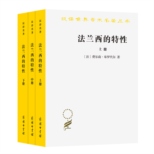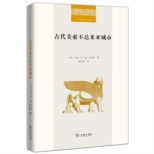FOREWORD The aim of this book is to trace the migrations processe of the Shaohao 少昊 clan, the Taotang 陶唐 clan and the Youyu 有虞 clan to construct a hypothesis about the sources of the Sai 塞 tribes. The “Sai 塞 ethnic group” as seen in the “Xiyu zhuan 西域傳” of Hanshu 漢書 (ch. 96) must have been the Sakās of the Bahistun inscription of Darius I [521-486 BCE] of the Achaemenid Empire. The Sai 塞 ethnic group were mainly made up of four tribes: the Asii, the Gasiani, the Tochari and the Sacarauli. By the end of the seventh century BCE the Asii and other tribes had already appeared in the valleys of the Rivers Ili and Chu. As late as the twenties of the sixth century BCE the Asii and the other tribes extended westwards as far as the northern bank of the Syr Darya. After that they were called “Sakā” by the Persians. In around 177/176 BCE, the Sai 塞 tribes were forced to give up the valleys of the Rivers Ili and Chu because of migration of the Da Yuezhi 大月氏. Some of them moved south, split off, and separated in the regions of the Pamirs and then moved east and entered the oases in the Tarim Basin. In around 140 BCE, the Sai 塞 tribes crossed the Syr Darya and moved south. A group of them entered Ferghāna and another group, Bactria. The states they founded were respectively noted as Dayuan 大宛 and Daxia 大夏 in the “Dayuan liezhuan 大宛列傳” of Shiji 史記 (ch. 123). At about the same time, another group of the Sai 塞 tribes migrated to the littoral of the Aral Sea and the Caspian Sea going downstream along the Sry Darya. These Sai 塞 people were noted as Yancai 奄蔡, but those who remained on the northern bank of the Syr Darya were known as Kangju 康居 in the “Dayuan liezhuan 大宛列傳” of Shiji 史記 (ch. 123). In 130 BCE, with the support of the Xiongnu 匈奴 the Wusun 烏孫 made an expedition against the Da Yuezhi 大月氏; they defeated the latter and occupied the valleys of the Rivers Ili and Chu. The Da Yuezhi 大月氏 once more migrated west and reached the valleys of the Amu Darya, defeating Daxia 大夏 and occupying its territory. Thereupon, the states of Wusun 烏孫 and Da Yuezhi 大月氏, as described in the “Dayuan liezhuan 大宛列傳” of Shiji 史記 (ch. 123), were established. The Sai 塞 tribes, which appeared in the valleys of the Rivers Ili and Chu by the end of the seventh century BCE had possibly come from the east. The precursors of the Asii, the Tochari, the Gasiani and the Sacarauli seem to have been the Yunxing-Rong 允姓戎 (the Rong 戎 of the Surname Yun 允), the Daxia 大夏, the Yuzhi 禺知 (Yuzhi 禺氏) and the Suoju 莎車 who appeared in pre-Qin 秦 records and books. In 623 BCE, Duke Mu 穆 of Qin 秦 dominated the Western Rong 戎 and opened up territories which extended for 1,000 li 里. This event possibly caused the Sai 塞 tribes’ westerly migration.





